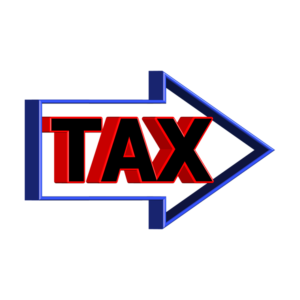In normal times, this would be tax season.
Not this year; these aren’t normal times.
The recent COVID-19 pandemic has already had a significant effect on our personal and professional lives. Between states and localities implementing “shelter-in-place” orders, commercial activity grinding to a near halt, and the stock market seeing massive losses, the United States has taken a severe economic hit as well as the public health hit.
COVID-19 virus has also affected tax obligations. Here’s what to know.
IRS Extends Deadlines
Filing: The IRS announced on March 21, 2020, that the federal income tax filing due date is automatically extended from April 15, 2020, to July 15, 2020. See IR-2020-58
Payment: Taxpayers can also defer federal income tax payments due on April 15, 2020, to July 15, 2020, without penalties and interest, regardless of the amount owed.
This deferment applies to all taxpayers, including individuals, trusts and estates, corporations, and other non-corporate tax filers as well as those who pay self-employment tax.
Procedure: Taxpayers do not need to file any additional forms or call the IRS to qualify for this automatic federal tax filing and payment relief.
Individual taxpayers who need extra time to file beyond the July 15 deadline can request a filing extension by filing Form 4868 through their tax professional, tax software, or using the Free File link on IRS.gov.
Businesses who need additional time must file Form 7004.
Refunds
IRS urges taxpayers who are due a refund to file ASAP
The IRS expects to continue to monitor issues related to the COVID-19 virus, and updated information will be posted on a special coronavirus page on IRS.gov.
Ways to Pay The IRS
IRS Direct
The IRS offers the ability to make electronic payments online.
Therefore, the days of manually writing a check and mailing it to the taxing agency via certified mail make little sense, given that secure options exist for electronic payments. Manual checks can be lost in the mail, stolen, or incorrectly posted to the wrong tax period.
For the IRS, individual taxpayers can make an electronic payment online through Direct Pay with a bank account. See the following link: . An individual taxpayer may use this service to pay Form 1040 taxes, estimated taxes, or other associated forms directly from your checking or savings account at no cost.
Also, the website allows a taxpayer to track payment by signing up for email notifications.
One drawback with Direct Pay is that not all tax liabilities can be paid using Direct Pay. The IRS has a helpful lookup table online to determine whether a balance owed to the IRS can be paid using Direct Pay.
If payment cannot be made using Direct Pay, a taxpayer must use the federal government’s Electronic Federal Tax Payment System, also known as EFTPS, which is discussed below.
Electronic Federal Tax Payment System
The best option for businesses or large payments is through the Electronic Federal Tax Payment System (EFTPS), a free service from the U.S. Department of the Treasury.
A taxpayer must enroll online to get started, and in seven business days, a Personal Identification Number (PIN) will be mailed to the taxpayer’s contact address. Upon receipt of a PIN, a taxpayer can make payments and check payment history.
A potential drawback with EFTPS is that a taxpayer must wait to receive a PIN before making a payment, but once enrolled, the process is relatively straight forward and secure. Like Direct Pay, a taxpayer can obtain a receipt and track payment.
Why filing deadlines matter
Taxpayers should always file their tax return on or before the due date and confirm with their tax return preparer that the return was timely filed.
This means obtaining a copy of the electronic receipt that the return preparer received after filing the return.
Many taxpayers fail to do this and assume that the accountant timely filed the return. If, however, for some unexpected reason, the return was not timely filed (e.g., the return prepare mistakenly failed to transmit the return or the transmission did not go through), it may be difficult to avoid a late-filing penalty, even if the taxpayer relied upon the accountant to timely file the return.
There are separate penalties for failing to file AND for failing to pay. Regardless of your current ability to pay, file the return and limit the penalties.
If you can’t pay
Given the unprecedented times, some taxpayers may simply lack the financial means to pay the taxes reported on the return by the due date.
There are options available for taxpayers in this situation, but the most crucial advice is to timely file the tax return by the due date to avoid the late filing penalty.
Once the return is timely filed, a taxpayer can choose a collection alternative, such as an installment agreement, offer in compromise, or currently not collectible status (financial hardship).
Other options may also exist, such as penalty relief, innocent spouse relief, and bankruptcy. Taxpayers facing collection issues should retain competent tax counsel, who can review the facts of their case, explain the options, and formulate a workable strategy.
Coming soon
Changes to California state income tax deadlines
How to avoid the pain of tax penalties
Guest contributor San Jose attorney Steven L. Walker advises clients on tax controversies and litigation with the IRS, the FTB, and state & local taxing agencies. His clients bring him civil and criminal tax matters, including tax audits and appeals, litigation in U.S. Tax Court and federal district court, tax fraud, offshore/foreign tax compliance, and tax collection. He also advises clients on business matters.
Steven is an adjunct professor at the University of San Francisco School of Law in the LLM (Taxation) program, where he teaches Civil and Criminal Tax Penalties, and Bankruptcy Taxation. He is also a Fellow of the American College of Tax Counsel and a former IRS attorney with additional experience at the FTB Legal Division. www.walk-law.com.






